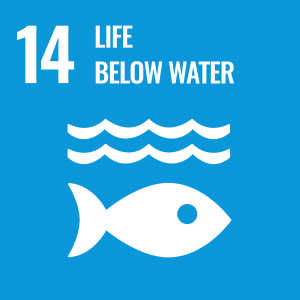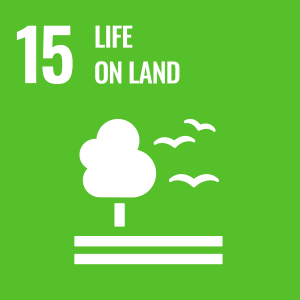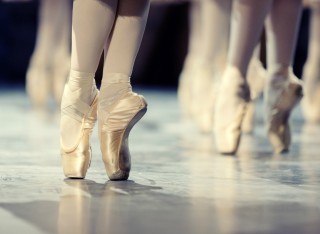
Dr Jonathan Skinner
About
Biography
Dr Jonathan Skinner is a Senior Fellow member of the Higher Education Academy with a particular teaching interest in interviewing skills and qualitative research methods. He has undertaken fieldwork in the Eastern Caribbean on the island of Montserrat (carnival and festival tourism and trauma, colonial relations, social development and disaster recovery) and in the US/UK (social dancing, arts health, contested heritage and St Patrick's Day). He recently applied his work on festivals and carnival to support sustainable lobster fishing practices in Sainte Luce, Madagascar (2019). He previously lectured at the University of Abertay Dundee (1996-2003), Queen's University Belfast (2003-2013) and the University of Roehampton (2013-2021). He is an experienced conference organiser and academic editor, keynote speaker, cruise ship lecturer and dance instructor. At Roehampton, he served as Chair of the TECHNE (AHRC Doctoral Training Programme) Training Group, and Programme Convener for the Anthropology BSc. At Surrey, he is Director of Prospective Outreach and Engagement. He is also the current Chair of the Royal Anthropological Institute's Travel and Tourism Committee. His co-edited book Leisure and Death won the 2020 Ed Bruner Book Prize for best new book.
Jonathan was awarded The Sociological Review Fellowship (1998/9), and has held Visiting Fellowships at the University of Oxford (2002/3), California State University - Sacramento (2007, and the University of Illinois at Urbana Champaign (2013). He has been Honorary Treasurer of the Association of Social Anthropologists of the UK (1999-2003), editor of the journal Anthropology in Action (2001-2007), and publications officer for the European Association of Social Anthropologists (2004-2008). He is currently an Adjunct Fellow of the Centre for Cosmopolitan Studies, University of St Andrews, co-edits the award-winning book series 'Dance and Performance Studies' for Berghahn Publishers with Professor Helena Wulff (University of Stockholm) and is advisor to the Northern Ireland arts health charity Arts Care. He is also two-times Ulster Salsa Champion (2008, 2011) and a qualified Argentine tango instructor offering charity social dance workshops through Dance Beyond.
ResearchResearch interests
Keywords: Contested and Choreographed Events; Co-Participatory Research Methods and Social Development; Tour Guides and Dark Tourism; Conservation and Festivals of the Sea
Funding Awards
Faculty Participant
2019-2027 TECHNE2 AHRC DTP bid (>£15million): Responsible for coordinating and writing ‘Training and Development’ component (375 studentships across the consortium over 5 cohorts)
2018-22 ‘Rising from the Depths: Utilising marine Cultural Heritage in East Africa to Help Develop Sustainable Social, Economic and Cultural Benefits’ – AHRC large grant collaboration £2m, PI Dr Jon Henderson from the University of Nottingham (now Edinburgh); providing support, training and co-supervising 4 doctoral students
2017-18 ‘Social Choreography’ AHRC Network Grant participant, £32,144 (developing a large grant on best practice working with refugees with Co-PIs Dr Nicholas Sutil, University of Leeds and Professor Sarah Whatley, Coventry University): https://www.socialchoreography.co.uk/
2013-17 ‘Cultural & Scientific Perceptions of Human-Chicken Relations’ – AHRC large grant collaboration £1.94m, PI Dr Mark Maltby, University of Bournemouth; providing support, training and co-supervising 2 doctoral students
Principal Investigator / Co-Investigator
2023 ‘“Renovation on the Rock”: an examination into multi-purpose use of an MSE stadium in Miami’, PI, Event Rights Mobility grant EU Commission Horizon 2023, March-April 2023) with ESRC Impact Accelerator Award
2019-22 “Shoring Up Marine Cultural Heritage: extending Madagascar’s ‘festival of the sea’ amongst the orphaned young of Lamu’s Anidan Children’s Shelter, Kenya”, PI, Rising from the Depths Network - AHRC Global Challenges Research Fund
2018-20 ‘REHARBOURING HERITAGE: tying tangible and intangible marine heritage to the performing arts to develop community engagement in food security and sustainable livelihoods in East Africa coastal communities’, PI, Rising from the Depths Network - AHRC Global Challenges Research Fund
2017-18 ‘Slavery, Abolition and Resistance: St Patrick’s Day and 250 years of Methodism on Montserrat’, PI, Southlands Methodist Trust
2016-19 ‘Saving the sea turtles of Anguilla: combining community action with scientific evidence to drive legislative change’, Co-I, EU Commission: BEST 2.0 Medium Grants – voluntary Scheme for Biodiversity and Ecosystem Services in Territories of European Overseas
2013 Invited International Fellow, School of US Studies, University of Illinois at Urbana-Champaign
2009-11 “Leading dance for older people - a community health network”, Co-PI with Dr Sylvia O’Sullivan, University of Limerick, Centre for Ageing Research and Development in Ireland (CARDI)
2007-8 “MOTILITY 21: twenty-first century social engagement for the older citizen through social dance in NI”, PI, Changing Ageing Partnership (CAP) project funded through the Atlantic Philanthropies
2007-8 “Second Degree Dance: movement, meaning and learning”, PI, British Academy research grant
2006 “Cultural Sounds and Conservation Texts: Soundscapes of a lost Montserrat (British West Indies)”, PI, Higher Education Academy, Education for Sustainable Development Project grant
2006 Lecturers in Industry EU Proteus placement grant – secondment to research and assist with the creation of a professional dance company
2005-7 University Research Fellowship – PI, 3 yr fieldwork grant to research migration, movement and cosmopolitan identity on the dance floor, California
2004 QUB Teaching and Learning Enhancement Grant – PI, to research teaching the anthropology of dance and to bring dance teachers into the classroom
2002-3 Visiting Fellowship, held at Refugee Studies Centre (Queen Elizabeth House), University of Oxford
2001 QinetiQ consultancy, PI, reviewing and analysing computer mediated communication research in the social sciences
1998-9 The Sociological Review Fellowship
1995 Sutasoma/Radcliffe-Brown Award
1994-8 Carnegie Trust Scholarship
Research interests
Keywords: Contested and Choreographed Events; Co-Participatory Research Methods and Social Development; Tour Guides and Dark Tourism; Conservation and Festivals of the Sea
Funding Awards
Faculty Participant
2019-2027 TECHNE2 AHRC DTP bid (>£15million): Responsible for coordinating and writing ‘Training and Development’ component (375 studentships across the consortium over 5 cohorts)
2018-22 ‘Rising from the Depths: Utilising marine Cultural Heritage in East Africa to Help Develop Sustainable Social, Economic and Cultural Benefits’ – AHRC large grant collaboration £2m, PI Dr Jon Henderson from the University of Nottingham (now Edinburgh); providing support, training and co-supervising 4 doctoral students
2017-18 ‘Social Choreography’ AHRC Network Grant participant, £32,144 (developing a large grant on best practice working with refugees with Co-PIs Dr Nicholas Sutil, University of Leeds and Professor Sarah Whatley, Coventry University): https://www.socialchoreography.co.uk/
2013-17 ‘Cultural & Scientific Perceptions of Human-Chicken Relations’ – AHRC large grant collaboration £1.94m, PI Dr Mark Maltby, University of Bournemouth; providing support, training and co-supervising 2 doctoral students
Principal Investigator / Co-Investigator
2023 ‘“Renovation on the Rock”: an examination into multi-purpose use of an MSE stadium in Miami’, PI, Event Rights Mobility grant EU Commission Horizon 2023, March-April 2023) with ESRC Impact Accelerator Award
2019-22 “Shoring Up Marine Cultural Heritage: extending Madagascar’s ‘festival of the sea’ amongst the orphaned young of Lamu’s Anidan Children’s Shelter, Kenya”, PI, Rising from the Depths Network - AHRC Global Challenges Research Fund
2018-20 ‘REHARBOURING HERITAGE: tying tangible and intangible marine heritage to the performing arts to develop community engagement in food security and sustainable livelihoods in East Africa coastal communities’, PI, Rising from the Depths Network - AHRC Global Challenges Research Fund
2017-18 ‘Slavery, Abolition and Resistance: St Patrick’s Day and 250 years of Methodism on Montserrat’, PI, Southlands Methodist Trust
2016-19 ‘Saving the sea turtles of Anguilla: combining community action with scientific evidence to drive legislative change’, Co-I, EU Commission: BEST 2.0 Medium Grants – voluntary Scheme for Biodiversity and Ecosystem Services in Territories of European Overseas
2013 Invited International Fellow, School of US Studies, University of Illinois at Urbana-Champaign
2009-11 “Leading dance for older people - a community health network”, Co-PI with Dr Sylvia O’Sullivan, University of Limerick, Centre for Ageing Research and Development in Ireland (CARDI)
2007-8 “MOTILITY 21: twenty-first century social engagement for the older citizen through social dance in NI”, PI, Changing Ageing Partnership (CAP) project funded through the Atlantic Philanthropies
2007-8 “Second Degree Dance: movement, meaning and learning”, PI, British Academy research grant
2006 “Cultural Sounds and Conservation Texts: Soundscapes of a lost Montserrat (British West Indies)”, PI, Higher Education Academy, Education for Sustainable Development Project grant
2006 Lecturers in Industry EU Proteus placement grant – secondment to research and assist with the creation of a professional dance company
2005-7 University Research Fellowship – PI, 3 yr fieldwork grant to research migration, movement and cosmopolitan identity on the dance floor, California
2004 QUB Teaching and Learning Enhancement Grant – PI, to research teaching the anthropology of dance and to bring dance teachers into the classroom
2002-3 Visiting Fellowship, held at Refugee Studies Centre (Queen Elizabeth House), University of Oxford
2001 QinetiQ consultancy, PI, reviewing and analysing computer mediated communication research in the social sciences
1998-9 The Sociological Review Fellowship
1995 Sutasoma/Radcliffe-Brown Award
1994-8 Carnegie Trust Scholarship
Supervision
Completed postgraduate research projects I have supervised
PhD supervision
Attiqa Faryal – (co-supervisor, Surrey) Exploring the Role of Dark Tourism Sites in Addressing Historical Oppression and Promoting Contemporary Social Justice Education
Katy Tse – (co-supervisor: University of Surrey studentship, pre-fieldwork) Social sustainability in Hong Kong migrant narratives of home, belonging and rebellion
Shoukry Samuel Amin Rozek – (lead supervisor, Surrey) Muslim medical travellers to the West
Tural Adilov - (lead supervisor: Davines Group funded, fieldwork) Philanthropy, hotel design and sustainability at Italy’s first B-Corp hotel: the Palazzo dell'Agricoltore
Kanokwan Phoaroon – (co-supervisor: self-funded) Haptic immersion in the creative industry experience economy
Oliver Qui – (co-supervisor: self-funded) Hyper-connectivity and wellbeing: A Grindr case study
Jingmei Xu - (lead supervisor, Surrey) Tourist Imagination and Performative Practices at Fantasy Film Locations: A Case Study of Harry Potter Fandom
PhD completion
Shyvonne Thompson – (lead supervisor: completed 2025, SeNSS DTP funded doctoral student, Roehampton) Challenging Historic and Contemporary Silences in Antigua and Barbuda - Amplifying Antiguan and Barbudan Voices at their 40th Year of Independence
Abdullah Alnabati - (co-supervisor: completed 2025, Saudi Arabia studentship, Surrey) Crowd behaviours during the Hajj: Developing crowd management model for religious event
Monicah Sairo – (lead supervisor: completed 2025, AHRC- funded doctoral student, Roehampton) Recycling and Other Cultural Production on Lamu Island, Kenya
Felicity Inns – (lead supervisor: completed 2025, TECHNE funded, Roehampton) : The Royal Navy, The Royal British Legion and Society
Zhenni Wu - (co-supervisor: completed 2024, Surrey) The Impact of Past Film Viewing Experience on Dark Tourism Experience Value: A Case of Titanic Belfast, UK
Kisiaya Saruni Mwasuni - (co-supervisor: completed 2024, AHRC- funded doctoral student, Roehampton) Revitalizing Marine oral tradition and Heritage: an anthropological exploration of intangible heritage makingin Bagamoyo, coastal Tanzania
Dr Wen-chi Chu – (lead supervisor: completed 2023, Surrey transfer from Roehampton - Taiwanese Government funded) Body as Metaphor: Anthropology and Epistemologies of non-Anatomical Body Movement in the British Context
Dr Fasco Idfonce Chengula - (co-supervisor: completed in 2023, Roehampton – AHRC funded, Roehampton) Knowing weather, strengthening livelihoods: the role of Indigenous knowledge weather forecast in fishing communities in coastal Tanzania
Dr Victor Alati – (co-supervisor: completed 2022, Roehampton – AHRC funded) Tour Guiding in Coastal Communities in Kenya
Dr Rebecca Litchfield – (lead supervisor: completed in 2022, Roehampton – TECHNE DTP funded) Dark Semiotics: The Capturing and Circulation of Dark Tourist Sites
Dr Yu Chun Chen - (lead supervisor: completed in 2020, Roehampton – Taiwanese Government funded) Individuality, Identity and Embodiment: Careers to Becoming a Dancer.
Dr Jonathan Karkut - (lead supervisor: completed 2018, Roehampton) The emergence of the Geoparks network: a global model to sustain and popularise geological heritage.
Dr Eva Zoubek - (co-supervisor: completed 2018, Roehampton – AHRC funded) From Egg to Dead: small-scale chicken keeping in modern Britain.
Dr Simon Crampton - (lead supervisor: completed 2014, Roehampton England and Wales Cricket Board funded)
The Construct of Mental Toughness: The development and validation of a new conceptualisation and measure.
Dr Therese Cullen – (co-supervisor: completed 2014, QUB) The role of St. Patrick in Downpatrick: From traditional pilgrimage to contemporary parade
Dr Bea Prentiss – (completed 2013, QUB) Latin Oxford: Teaching, Learning and Role Reversal in the Dance Class.
Dr Imtiaz Mahmud - (lead supervisor: completed 2010, QUB) Ethnicity and Nationalism in the Chittagong Hill Tracts of Bangladesh.
Dr Lindsay Sprague - (lead supervisor: completed 2009, QUB) Living well around The Clinic: An Ethnography of Agency and Disclosure in the lives of those with HIV/AIDS.
Teaching
MANM386 - RESEARCH METHODS
MAN3210 - CARNIVALS, FESTIVALS, AND THE CREATIVE INDUSTRIES
MAN2217 - HOSPITALITY AND EVENTS FIELD TRIP
MAN1108 - TOURISM & SOCIETY
Sustainable development goals
My research interests are related to the following:






Publications
Highlights
KEY PUBLICATIONS
Skinner, J., F. Murphy and E. Heffernan (eds) (2021) Collaborations: Anthropology in a Neoliberal Age, London: Bloomsbury Academic. ISBN 978-1-35000-226-5 (Hardback)
Skinner, J. and A. Gronseth (eds) (2021) Mobilities of Wellbeing: Migration, the State and Medical Knowledge, Durham NC: Carolina Academic Press. ISBN 978-1-5310-2031-6 (Paperback)
Skinner, J. and J. Feldman (2018) Tour Guides as Cultural Mediators – Special Issue of Ethnologia Europaea /Journal of European Ethnology and volume published by Museum Tusculanum Press, 48(2): 5-120. ISBN 978-87-635-46478 / ISSN 0425-4597.
Skinner, J. and A. Kaul (eds) (2018) Leisure and Death: Lively Encounters with Risk, Death, and Dying, Boulder, Co: University of Colorado Press. ISBN: 978-1-60732-728-8 (Paperback) ** 2018 US Public Radio recommended Summer reading (Natural History & Sustainability) ** ** 2020 Ed Bruner Book Prize **
Skinner, J. and L. Jolliffe (eds) (2017) Visiting Murals: Politics, Heritage and Identity, London: Routledge. ISBN 9781472461438 (Hardback)
Skinner, J., A. Wilford and P. Antick (eds) (2016) Terror on Tour - Special Issue, Liminalities: A Journal of Performance Studies, 12(5), http://liminalities.net/12-5/. ISSN: 1557-2935 (Online)
Skinner, J. and D. Bryan (eds) (2015) Consuming St Patrick’s Day, Cambridge: Cambridge Scholars Publishing. ISBN 978-1-4438-7631-5 (Hardback)
Skinner, J. (Ed.) (2014) ‘Applied and Social Anthropology, Arts and Health’ (Special Issue)Anthropology in Action: Journal for Applied Anthropology in Policy and Practice 21(1): 2-42. ISSN 0967-201X
Skinner, J. (Ed.) (2012) The Interview: An Ethnographic Approach, Oxford: Berg Publications. ISBN 9781847889409 (Paperback)
Skinner, J. (Ed.) (2012) Writing The Dark Side of Travel, Oxford: Berghahn Books. ISBN 978-0-85745-341-9 (Paperback)
Skinner, J. and H. Neveu-Kringelbach (eds) (2012) Dancing Cultures: Globalization, Tourism and Identity in the Anthropology of Dance, Oxford: Berghahn Books. ISBN 978-0-85745-575-8 (Hardback)
Skinner, J. (Ed.) (2012) Interviewing Ireland: North and South, Irish Journal of Anthropology, Special Edition, 15(1): 5-46. ISSN: 1393-8592 (Print)
Skinner, J. and D. Theodossopoulos (eds) (2011) Great Expectations: Imagination, Anticipation, and Enchantment in Tourism, Oxford: Berghahn Books. ISBN 978-0-85745-277-1 (Hardback)
Skinner, J. (Ed.) (2010) The Dark Side of Travel, Journeys: The International Journal of Travel and Travel Writing, Special Edition, 11(1): 1-177. ISSN: 1465-2609 (Print)
Skinner, J. and M. Hills (eds) (2006) Managing Island Life: Social, Economic and Political Dimensions of Formality and Informality in ‘Island’ Communities, Dundee: University of Abertay Press. ISBN 1-899796-14-2 (Paperback)
Skinner, J. (Ed.) (2005) Special Edition: Embodiment and Teaching and Learning in Anthropology, Anthropology in Action, 12(2), pp.1-82. ISSN 0967-201X (Print)
Skinner, J. (2004) Before the Volcano: Reverberations of Identity on Montserrat, Kingston, Jamaica: Arawak Publications. ISBN 976-189-21-5 (Paperback)
Skinner, J. (Ed.) (2002) Special Edition: Managing Island Life, Social Identities: Journal for the Study of Race, Nation and Culture, 8(2), pp.205-320. ISSN 1350-4630 (Print)
Skinner, J. and C. Di Domenico and A. Law and M. Smith (eds) (2001)Boundaries and Identities: Nation, Politics and Culture in Scotland,Dundee: University of Abertay Dundee Press. ISBN 1-899796-0808 (Paperback)
This study advances the theorisation of sex in tourism by conceptualising extradyadic sex as a form of touristic leisure among queer men using Grindr during travel. Drawing on 26 in-depth interviews, it identifies two types of sexual non-monogamy – monogamish and open – to examine how mobility, anonymity, and digital mediation enables situational disinhibition and the negotiation of intimacy, pleasure, and relational ethics beyond monogamous norms. Grindr functions as a socio-sexual infrastructure through which extradyadic encounters generate emotional (un)availability and resistance as well as risk, escapism, and validation. Framing extradyadic sex in tourism as a digital-situational assemblage of intimacy moves tourism scholarship beyond the monogamy-promiscuity binary, revealing how queer tourists reconfigure intimacy, desire, and wellbeing through travel.
PurposeInnovative immersive technologies and techniques are being applied in the events industry to create new experiences and services for guests. However, academic research in this field is dispersed and lacks coherence. Although event professionals are increasingly turning to immersion for competitive advantage, there is little agreement in the literature on the nature and impacts of immersion, or on how to measure these. This paper classifies and analyses the main academic studies to date in this field, and presents a conceptual model and future research agenda for its study.Design/methodology/approachA systematic literature review was carried out using the PRISMA methodology, using sources drawn from Scopus, Web of Science and Google Scholar. Articles were identified through a keyword search. Following this process, 65 articles published in English from 1990-2023 were thematically analysed.FindingsThe study analyses the characteristics of immersive events research, identifies its main themes and research gaps and suggests future directions to this emerging field. Thematic analysis revealed four dominant thematic areas: immersion theory, technology and innovation, event design, and attendee behaviour.Originality/ValueThis paper proposes a new conceptual model for research into immersive events, from a multidisciplinary perspective, drawing on insights from fields including hospitality and tourism, events, technology, computer science and engineering. Additionally, a future research agenda is proposed for this field, based on the identification of research gaps and the proposal of novel research questions.
The emergence of holographic technologies is challenging the traditional concert format within the music events industry. Research on attendee satisfaction of holographic performances remains scarce resulting in uncertainty of future industry application. Utilizing qualitative manual thematic analysis as well as quantitative mean analysis, this paper investigates attendee satisfaction at the ABBA Voyage concert in London. Furthermore, the acceptance of holographic technology was investigated through questioning attendees’ intention of future attendance of holographic performances. 147 valid survey responses revealed a high average satisfaction rate. Three dominating themes of attendance motivation were also identified: (1) nostalgia, (2) socialization and (3) novelty. Nevertheless, survey responses revealed a dependence of the acceptance of holograms on the specific artist, specifically mentioning issues concerning morality and production type. Consequentially, a co-dependence between push and pull factors is proposed with the artist as key pull factor and the three attendance motivations as a set of push factors.
Friday night lights: dimmed with Latin music through the pub sound system. An audience builds three-thick around the long bar, single-spaced on the balcony. The salsa social dancers have come to colonise The Empire. They have practised at home before coming out, working off bootleg DVDs, or pairing up in the recesses of the large public room under the confused gaze of the bouncers and drinkers as they weave their moves between the tables, oblivious of others but also grandstanding in their movements and contortions in front of the beginners. They flow in front of the flawed novices who have come to drink, break ‘craic’, meet and romance to an exotic beat. Soon they will hear the clave call: a call to arms that breaks free from the sectarian binaries that surround the streets of Belfast. In dance we connect.
AbstractThis chapter advances work on the exclusion zone as a dark tourism attraction. 1 It examines the mobile nature of these traumascapes, concentrating on the Chornobyl Exclusion Zone (CEZ) and the Montserrat Volcano Exclusion Zone (MEZ). Both zones have been attraction points that move: they expand and they contract; their influence and significance, impact and riskiness vary according to politics, conflict, science and social scales of tolerance. Drawing upon first-hand, long-term ethnographic research at both very topical sites, these two case studies are used to examine “exclusion” as a dark tourism concept associated with Apocalyptic separation from everyday living. Rather than spaces empty of signification, Chornobyl and Montserrat are represented as places of creativity, and treated as spaces of containment and honoured by artists as Apocascapes linked to revelation - self-destructive, anti-capitalist, exclusive to the wealthy indulging in the post-Anthropocene eco-nightmare. With their ruins and ghost towns, their radioactive and pyroclastic threatenings, and their heavily restricted and policed rules for brief visitings, the sites are more than toxic tourism layovers. These exclusion zones relate to natural and man-made disaster phenomena with the principles of attraction tethered by restraint.
This paper uses a hauntological approach to examine the extent to which the present is haunted by the past. Specifically, it looks at playful indeterminate referentiality and the relationship between the tour guide and their revived subjects and subject matter. Tour guides of Strawberry Hill House in Twickenham daily and nightly volunteer to introduce visitors to an extra-ordinary pseudo-gothic castle built by rakish socialite, writer, politician, and architect Sir Horace Walpole (1717–1797). Walpole’s building works and textual writings prefigured the Gothic Revival and mass appeal of the technological phantasmagoria. Through this louche inter-textuality, Walpole is animated by the guides of his house, some of whom present an open-ended queer reading of place and person. This paper argues that this haunting by Horace is a theatricalization on the aura of materialism, a ‘phantomime’ afterlife from an enlightened Gothic revival.
Physical exercise is known to aid stress regulation, however the effects of specific exercise types are under-researched. Dance uniquely combines several characteristics that are known to have stress regulatory effects, such as music listening. Nonetheless, dance has received only little attention in studies examining the stress regulatory effects of exercise. We used a multidisciplinary narrative review as a novel approach to explore the complex relationship between dance and stress by integrating psychological, neurobiological, physiological, and socio-cultural findings. In particular, we looked at the effects of music and rhythm; partnering and social contact; and movement and physical activity. There is strong empirical evidence for the beneficial stress regulatory effects of music, social contact, and movement, illustrating that dance can promote coping and foster resilience. Neurobiological research shows that these findings can be explained by the effects that music, social contact, and movement have on, amongst others, dopamine, oxytocin, and β-endorphin modulation and their interplay with the stress system. Socio-cultural considerations of the significance of dance help to understand why dance might have these unique effects. They highlight that dance can be seen as a universal form of human expression, offering a communal space for bonding, healing, and collective coping strategies. This review is the first to integrate perspectives from different disciplines on the stress regulatory effects of dance. It shows that dance has a large potential to aid coping and resilience at multiple levels of the human experience. At the same time, we identified that the existing evidence is often still limited by a narrow focus on exercise characteristics such as intensity levels. This hinders a more holistic understanding of underlying stress regulatory mechanisms and provides important directions for future research. •First multidisciplinary narrative review of the stress-regulative role of dance.•Dance combines music, synchronisation, social touch, self-expression, and movement.•Different dance characteristics promote coping, foster resilience, and reduce stress.•Dance is not only a leisure time activity but a culturally significant embodied practice.•The unique stress-regulative effects of exercise types need to be better understood.
This article is about the salsa dance: how it is taught; and how, why, and where it is learned. This modern social leisure pursuit has gained in popularity such that it can be found practiced throughout the world. Its social nature makes it an attractive activity for cosmopolitan citizens seeking to connect with others through a portable "decontextualised" skill that they can acquire. Despite the similarity of salsa classes and salsa dancing in many major cities of the world, there are differences in meaning and intent for the participants. This article examines salsa dancing in several major cities and shows that the city is reflected in the salsa as-respectively-segregated (Belfast), multicultural (Hamburg), and cosmopolitan (Sacramento). In other words, the globalization of salsa has not resulted in its homogenization. Local particularities and individual reactions, particularly in terms of dancers' emotions, are how this global export is being received.
"What new varieties of wellbeing and misfortune are emerging in this post-9/11, postmodern, neoliberal era of travel and mobility? What is the future of movement for leisure and medical necessity, for human dignity and mutuality, for wellbeing and suffering in its many dimensions? This volume examines the relationship between movement and wellbeing from patient mobility to asylum seeker wellbeing, from public health care provision for marginalized peoples to arts care festivals for all. It demonstrates how knowledge is created between and within social relations, imaginations and persons, and uses detailed ethnographic examples from around the world to explore how citizens, migrants and nation states calculate and act upon issues of health and wellbeing. The goal is to show just how diverse and mobile experiences of misfortune, suffering and wellbeing can be"--
Chapter about arts health evaluation and wellbeing of Strabane town
"What new varieties of wellbeing and misfortune are emerging in this post-9/11, postmodern, neoliberal era of travel and mobility? What is the future of movement for leisure and medical necessity, for human dignity and mutuality, for wellbeing and suffering in its many dimensions? This volume examines the relationship between movement and wellbeing from patient mobility to asylum seeker wellbeing, from public health care provision for marginalized peoples to arts care festivals for all. It demonstrates how knowledge is created between and within social relations, imaginations and persons, and uses detailed ethnographic examples from around the world to explore how citizens, migrants and nation states calculate and act upon issues of health and wellbeing. The goal is to show just how diverse and mobile experiences of misfortune, suffering and wellbeing can be"--
Collaborations responds to the growing pressure on the humanities and social sciences to justify their impact and utility after cuts in public spending, and the introduction of neoliberal values into academia. Arguing in defense of' anthropology, the editors demonstrate the continued importance of the discipline and reveal how it contributes towards solving major problems in contemporary society. They also illustrate how anthropology can not only survive but thrive under these conditions. Moreover, Collaborations shows that collaboration with other disciplines is the key to anthropology's long-term sustainability and survival, and explores the challenges that interdisciplinary work presents. The book is divided into two parts: Anthropology and Academia, and Anthropology in Practice. The first part features examples from anthropologists working in academic settings which range from the life, behavioural and social sciences to the humanities, arts and business. The second part highlights detailed ethnographic contributions on topics such as peace negotiations, asylum seekers, prostitution and autism. Collaborations is an important read for students, scholars and professional and applied anthropologists as it explores how anthropology can remain relevant in the contemporary world and how to prevent it from becoming an increasingly isolated and marginalized discipline.
Great Expectationsis one of those classic English texts set for reading on schoolsyllabi, watched on television or on stage as a period drama, or heard on the radio.It is the tale of Pip, his adventures and, critically for us, how Pip’s expectationsguide him through life.1Dickens presents Pip’s journey as a secular pilgrimage,one dependent upon the imagination and consumption of desire – foracceptance, love, wealth, status and, eventually, happiness. Each time Pip’sexpectations are dashed new ones rise up, as though Dickens were offering us atale of the human condition: we think therefore we desire. This disappointmentis bred from a deep-seated capitalist-driven reproduction of expectation anddesire which we believe to be intrinsic in society; both real and apparent, it runsfrom colonialism and Orientalism through to tourism, operating upon desire, aplay of the imagination and, ultimately, conquest – visual and/or embodied (cf.Young 1995; Campbell 1987).
Jive is a living history. It is a language and a movement – both bodily and counter-cultural – which spans the centuries and crosses the continents, and takes us from the Middle Passage to the D-Day landings, from swing and Lindy hop ‘joints a jumpin’’ in Harlem, New York, to zoot-suit retro swing revivals in Herrang, Sweden. In his history of jive, Bill Milkowski refers to jive as a language, ‘like cussing ... a language of emotion: a means of describing how one is affected by certain experiences or situations’ (Milkowski 2001: 20). Like soul and hiphop, jive can be a slang of inclusion, a cockney ebonics, an idiolect marking out a group, fraternal and black – ‘African-American bohemianism’ (Saul 2003: 7) in this case. It is a term said to have been invented in the 1920s by the Chicago-based musician Louis Armstrong, and popularized in the 1930s by Cab Calloway, the ‘Professor of Jive’. ‘Are You Hep to the Jive’ (1940) is – besides ‘Minnie the Moocher’ (1931) and ‘Take the “A” Train’ (1941) – one of Calloway’s signature numbers, one which asks the listener if they are up to date, ‘hip with’ the jive, the dance as well as the latest trends and fashions.1 ‘Jive’ was also a codeword for marijuana on the streets and in the lyrics of many big-band anthems. Calloway published his own Hepster’s Dictionary (Calloway 1944) that defined jive as Harlemese speech for ‘stuff’, as in ‘did you bring the jive’, or as blarney as in ‘He can jive his way into any hep cat’s heart’. Postwar, jive lost this meaning and ‘hep’ fell out of favour as a popular term.
Highlights: Exclusion tourism is a form of niche tourism where the tourist visits Exclusion Zones; these exclusion zones are places where the tourist projects utopic or dystopic futures from films and books; there is an apocalyptic dimension to this tourism found in the Chernobyl Exclusion Zone and the Montserrat volcano exclusion zone examined in this chapter.Overview - This chapter examines venues that had been destroyed or abandoned but in their apocalyptic ruin have emerged as conflicted tourist attractions associated with science fiction. There is no doubt that post-apocalyptic landscapes are particularly attractive for science fiction texts (books, films and video games). As tourist destinations, they elicit reactions of emptiness, unevenness, loss and desolation that are counterbalanced by awe, fascination and a sublime enjoyment that Manjikian (2012) refers to as ‘the romance of the end’. The apocalyptic – whether ‘man-made’ or ‘natural’ – are dystopic locations where the future subjunctive can be played out by temporary visitors who court the uniqueness of their exclusion.
This article examines heritage-making first-hand through the techniques of the imagination visiting Strawberry Hill House, Twickenham, the Summer house and Gothic castle of Horace Walpole. Walpole developed Strawberry Hill as an architectural experiment in visitor emotions. In a now seemingly empty historic house, Walpole’s sleights of hand are being carefully and authentically conserved to fulfil the imaginations and expectations of the tourist as though a tour guide from beyond the grave. A detailed exploration of this staged encounter in the Tribune Room during a temporary exhibition highlights the workings of the tourist imaginary and the techniques and technologies of the visit, in particular the use of a 1774 guidebook as a resource for self-guided tourists, in conservation work, and the virtual development of the house as an award-winning heritage destination.
The interview is an uncertain art or skill, sometimes productive and sometimes counter productive. This chapter presents an overview of the interview and its use in other disciplines, most notably sociology—once referred to as ‘the science of the interview’—before turning to its place and use in anthropology. The interview is not just a popular qualitative research method and means for knowledge coproduction. The interview has become both research trajectory and contemporary trend, particularly as expressed through the discipline of sociology. Person-centred interviews require a high degree of reflexivity and reflection in the counsellor. The chapter also presents an overview of the key concepts discussed in this book. The book features a variety of examples of interview use highlighting issues ranging from creativity to rapport, silence to subversion and apology. It considers the interview an instance of inspiration, a rebounding or zigzagging of creativity.
Historic over-exploitation and the more recent threats caused by fisheries by-catch, disease and climate change have left sea turtle populations in the Wider Caribbean at risk of extinction. In 1995, following regional declines in nesting and foraging populations, the island of Anguilla implemented a moratorium on the hunting of turtles. At the request of the Government of Anguilla for scientific data to either support or remove the moratorium, comprehensive population estimates were obtained, and foraging, nesting and migratory movements were examined. In addition, community perspectives on turtles and their protection were assessed. Between 2015 and 18 surveys of 30 nesting beaches estimated low nesting activity with a maximum of 41 hawksbill, 15 green, and 1–2 leatherback turtles nesting in Anguilla annually. The inter-nesting range of hawksbills exhibited high levels of geographic overlap and occurred within 1.5 km of nesting beaches. Migratory tracks of hawksbill turtles traversed through seven exclusive economic zones, two of which allow a legal turtle fishery. Site fidelity was observed in foraging areas of green turtles and genetic analysis revealed population differentiation between green turtle foraging sites in Anguilla and between hawksbill rookeries in Anguilla compared to other Leeward Islands, indicating the individual importance of each foraging and nesting site. The Anguillan public (n = 302) overwhelmingly agreed with the current ban on harvesting sea turtles and considered turtles important for ecotourism. Our work provides a case-study, that can be applied globally, of how scientific research combined with community perspectives can effectively inform policy and ultimately protect endangered species, and highlights that local Governments provided with high quality data in a timely fashion for their policy making timetable are more likely to integrate findings into their decision-making process.
This chapter is a meditation on everynight walks in south west London during the COVID-19 lockdowns. These night walks are examined through careful reflection and distillation to present the chaos of the inner monologue crowding in on the walker as they pursue the ostensibly simple action of putting one foot in front of the other. The suggestion is that no two walks are the same whether it be external gait, or internal conversation with the self interrupted by reactions to external stimulii. More explicitly, sections of the chapter engage with superficial visual stereotypes of walking projected upon subjects as place-making dispositions of the body, illustrations of an urban or peasant habitus, and examples of allegedly socially-sedimented practices in the body. The night walks are compromised by context and the (evolutionary) history of the body but remain unique, creative and distinct. A street at night, illuminated by streetlights. The surrounding area is dark, with silhouettes of trees and buildings faintly visible against the night sky. https://www.w3.org/1999/xlink" content-type="colour" xlink:href="https://s3-euw1-ap-pe-df-pch-content-public-p.s3.eu-west-1.amazonaws.com/9781003357056/9f152ace-7226-429c-908e-ba2d659f94c6/content/fig289_1_C.jpg"/>
Face-to-face interviews are a fundamental research tool in qualitative research. Whilst this form of data collection can provide many valuable insights, it can often fall short of providing a complete picture of a research subject's experiences. Point of view (PoV) interviewing is an elicitation technique used in the social sciences as a means of enriching data obtained from research interviews. Recording research subjects' first person perspectives, for example by wearing digital video glasses, can afford deeper insights into their experiences. PoV interviewing can promote making visible the unverbalizable and does not rely as much on memory as the traditional interview. The use of such relatively inexpensive technology is gaining interest in health profession educational research and pedagogy, such as dynamic simulation-based learning and research activities. In this interview, Dr Gerry Gormley (a medical education researcher) talks to Dr Jonathan Skinner (an anthropologist with an interest in PoV interviewing), exploring some of the many crossover implications with PoV interviewing for medical education research and practice.
This is a personal reflection reacting and responding to the COVID-19 global pandemic and the domestication and on-lining of physical leisure pursuit. In Anthony Giddens 'The Transformation of Intimacy, there is the suggestion that the condition of the plastic is one 'decentred' and 'freed from the needs of reproduction'. Giddens was writing generally about sexuality and the physical labour of reproduction, but this suggestion warrants wider exploration, particularly when Giddens concludes his argument with the suggestion that intimacy and democracy are ideally implicated in each other: autonomy of the self and open conditions of association as preconditions for establishing his reflexive project of the self. This personal reflection develops this suggestion by looking at two creative responses to the pandemic lockdown as socially distanced tennis and Zoom tango become tactics for living with the unexpected, for coping with isolation, for retaining and returning to an everyday.
This article uses the personalised political tour of the Falls Road as a case study with which to unpack the debate on political tourism in Northern Ireland. It shows how significant the walking mode of tourist transport is to the tourist experience and how integrated and effective it is in the context of explaining the Troubles and extending the Republican ideology. Within this contentious narrative of movement, the tour guide develops an ambivalence that intrigues, repulses and propels the tourist through the tour.
Traditionally, when North American tourists arrive to celebrate St. Patrick's Day on Montserrat, they find an island bedecked in shamrock green colors. Traces of Irishry appear in various symbols and are deployed about the island; these include Irish names, Irish music, and even Irish patois, generally known as "the brogue."
Purpose - The purpose of this paper is to present contrasting approaches to the descriptive case study of tourism to the buried city of Plymouth, Montserrat, an example of the marketing and burying - the supply and demand - of apocalyptic dark tourism on the island. Design/methodology/approach - A case study mixed-methods methodology is adopted, and findings are derived from tour guiding fieldwork, guide and tourist interviews, and an analysis of travel writing and tourism marketing campaigns. Findings - Dark tourism is viewed as a contentious and problematic concept: it attracts and repels tourism to the former capital Plymouth, Montserrat. After 20 years of the volcano crisis, the islanders, government and Tourist Board are commemorating resilience living with the volcano and regeneration in a disaster scenario. Marketing and consumption approaches to dark tourism elucidate different facets to the case study of "the buried city" of Plymouth, Montserrat, and the Montserrat Springs Hotel overlooking Plymouth. The disjunct between these two types of approach to dark tourism, as well as the different criteria attached to working definitions of dark tourism - and the range of interests in apocalyptic dark tourism into the city and its surrounds - show some of the problems and limitations with theoretical and scalar discussions on dark tourism. Research limitations/implications - The paper's implications are that both supply and demand approaches to dark tourism are needed to fully understand a dark tourism destination and to reconcile the disjunct between these two approaches and the perspectives of tourist industry and tourism users. Originality/value - This is a descriptive dark tourism case study of a former capital city examined from both supply and demand perspectives. It introduces the apocalyptic to dark tourism destination analysis.
This case narrative examines the integration of the fieldtrip into the student’s international event management degree experience. It concentrates upon visits to Belfast, Northern Ireland, where students have an immersive experience into event management, placemaking and regeneration in a post-conflict environment. The fieldtrip constitutes a deep learning pedagogy of real-world scenario and authentic dynamics that complement and enliven classroom activities and module readings. The digital artifacts developed by students, and their presentations on the last day of the fieldtrip, focus their studies whilst in the field.
This article assesses the experimental teaching and learning of an anthropology module on 'modem dance'. It reviews the teaching and learning of the modem dances (lecture, observation, embodied practice, guest interview), paying attention to the triangulation of investigation methods (learning journal, examination, self-esteem survey, focus group interview). Our findings suggest that-in keeping with contemporary participatory educational approaches-students prefer guest interviews and 'performances of understanding' for teaching and learning, and that focus groups and learning journals were the preferred research methods for illuminating the students' teaching and learning experience.
This article looks at the difference between scientists' written reports and their oral accounts, explanations and stories. The subject of these discourses is the eruption of Mount Chance on Montserrat, a British Overseas Territory in the Eastern Caribbean, and its continued monitoring and reporting. Scientific notions of risk and uncertainty which feature in these texts and tales will subsequently be examined and critiqued. Further to this, this article will end by pointing out that, ironically, the latter - the tale - can in some cases be a more effective and approximate mode of communication with the public than the former - the text.


